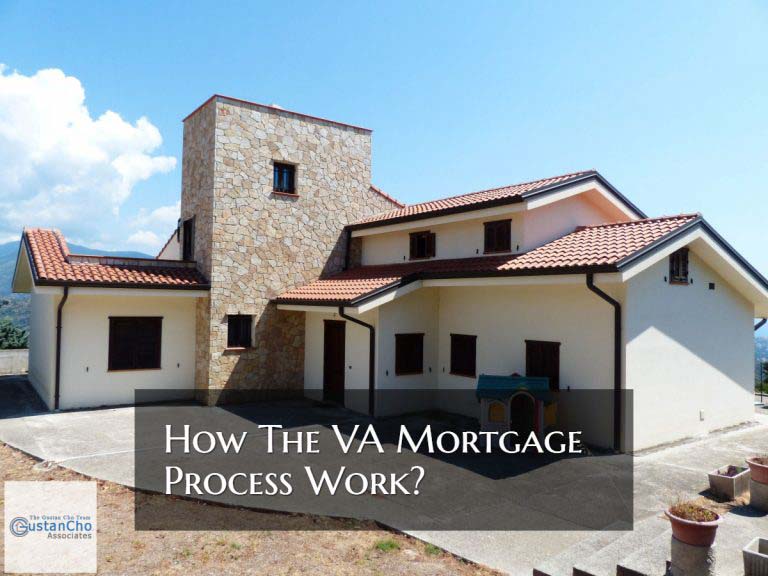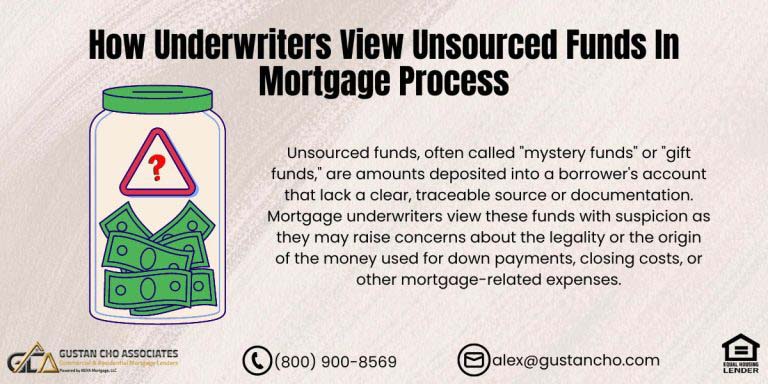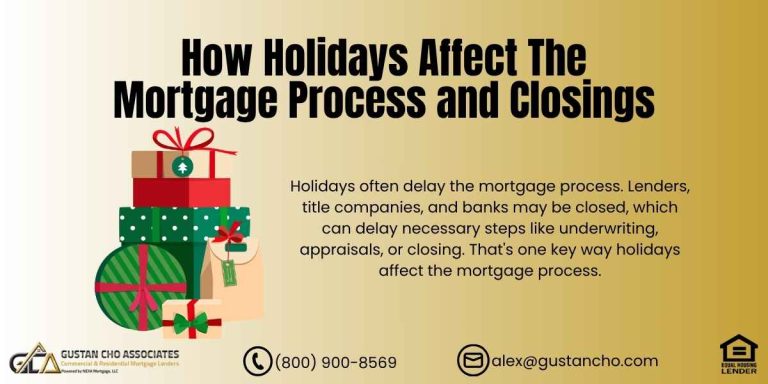This Article Is About How Mortgage Underwriters Analyze Credit History And Income
The ability to repay the new mortgage payment is of utmost importance for lenders. This is why mortgage underwriters are very thorough when underwriting a mortgage loan applicant’s file. The best way of predicting whether the loan applicant is financially responsible or not is by reviewing the overall payment history of all of their bills. The mortgage underwriter will determine the ability to repay the new mortgage payment by the borrower by determining the qualified income and income stability. The best way of assurance the borrower will continue to pay their new mortgage payments is by verifying the borrower will have their job and make the same income for the next three years. In this article, we will discuss and cover how mortgage underwriters analyze the borrower’s credit history and qualified income.
The Importance Of The Borrower’s Credit History And Income
Credit history and income are the most important factors that play in a mortgage loan approval. There are certain mortgage guidelines on How Mortgage Underwriters Analyze Credit History And Income on borrowers. There are certain minimum mortgage lending guidelines when it comes to credit history and income.
Qualifying For A Mortgage After Bankruptcy And Foreclosure
There are also waiting periods after someone has the following:
- Chapter 7 bankruptcy
- Chapter 13 Bankruptcy
- Foreclosure
- Deed in lieu of foreclosure
- Short sale
In this article, we will cover how mortgage underwriters process a borrower with regard to income and credit history.
Credit History And Income Mortgage Guidelines
Here are the basic credit history and income requirements for a home mortgage loan borrower to qualify for mortgages. The way on How Mortgage Underwriters Analyze Credit History And Income is similar to government, conventional, non-QM, jumbo loans, and other alternative financing programs. The most common loan program today is FHA Loans. HUD, the parent of FHA, promotes homeownership and homebuyers can qualify for FHA Loans with 580 credit scores and less than perfect credit. We will cover FHA Loans in this blog. Viewers who have questions on other loan programs on ways on how mortgage underwriters analyze credit history and income, please contact us at Gustan Cho Associates at 800-900-8569 or text us for a faster response. Or email us at gcho@gustancho.com.
Waiting Period Requirements After Bankruptcy And Housing Event
There are mandatory waiting period requirements to qualify for mortgages after bankruptcy and/or housing event (foreclosure, deed in lieu of foreclosure, short sale). Gustan Cho Associates has alternative types of financing called non-QM loans. On non-QM loans, there is no waiting period after the housing event. Non-QM loans have no waiting period after the bankruptcy discharge date. However, a 30% down payment is normally required. Most Jumbo Mortgage lenders will require a seven-year waiting period to qualify for Jumbo Loans after Chapter 7 Bankruptcy.
Home Loan After Bankruptcy
Home Buyers can become homeowners again after bankruptcy. However, there are waiting period to qualify for home loans after both Chapter 7 and Chapter 13 Bankruptcy:
Chapter 7 Bankruptcy:
There is a mandatory two year waiting period after the discharge date of Chapter 7 bankruptcy to qualify for FHA, VA, USDA Loans
- There is a two-year waiting period to qualify for VA Loans after the Chapter 7 Bankruptcy discharged date
- There is a four-year waiting period to qualify for Conventional Loans after the discharge date of Chapter 7 Bankruptcy
Chapter 13 Bankruptcy:
Both VA and FHA Allows borrowers to be eligible for mortgages one year into a Chapter 13 Bankruptcy Repayment Plan
- There is no waiting period to qualify for VA Loans and FHA Loans after the Chapter 13 Bankruptcy discharged date
- Gustan Cho Associates Mortgage Group are experts in originating and funding VA and FHA Loans during and after Chapter 13 Bankruptcy discharge
- There is a two-year waiting period to qualify for conventional loans after Chapter 13 Bankruptcy discharge
- There is a four-year waiting period to qualify for conforming loans after Chapter 13 Dismissal date
Credit History And Income: Qualifying For Mortgage After Housing Event
There are mandatory waiting period requirements to qualify for government and conventional loans after a housing event.
Foreclosure, Deed in Lieu of Foreclosure, Short Sales:
- There is a mandatory waiting period of 3 years from the recorded date of the foreclosure or deed in lieu to qualify for FHA and USDA Loans
- There is a two year waiting period after the recorded date of foreclosure and/or deed in lieu of foreclosure to qualify for VA Loans
- The three year waiting period clock starts when the name of the deed is transferred out of the homeowner’s name
- Or the date of the sheriff’s sale to qualify for FHA and USDA Loans
- For short sales, there is a three-year waiting period to qualify for FHA and USDA Loans
- For VA Loans, the waiting period after a short sale is two years
- For conventional mortgage loans, a borrower can qualify for a conventional loan after four years from the recorded date of the deed in lieu of foreclosure and/or short sale
- There is a seven-year waiting period to qualify for a conventional mortgage after the recorded date of foreclosure
Qualifying For Mortgage With Outstanding Collections And Charge Offs
Gustan Cho Associates is a mortgage company licensed in multiple states with no lender overlays on government and conventional loans. We do not require borrowers to pay off outstanding collections and charge offs on FHA, VA, and Conventional Loans (owner-occupant conventional loans only).
Credit History And Income: Derogatory Credit Tradelines
Collections, Charge offs, Overdrafts, and Late Payments:
- Collection accounts that are over a year old do not have to be paid even with outstanding balances
- Charge offs with outstanding balances do not have to be paid
- Borrowers cannot have any bank overdrafts in the past 60 days
- Overdrafts in the past 12 months can be deal killers
- But lenders only ask for 60 months bank statements
- Recent late payments are really frowned upon
- Multiple recent late payments can be an issue
- One or two late payments in the past 12 months are acceptable as long as the borrower has a good letter of explanation
Qualifying For Mortgage With Deferred Student Loans
Student loans:
- Borrowers cannot be delinquent on government loans
- All student loans in collections or in default need to be out of collections and in good standings before a borrower can proceed with the mortgage approval process
- VA is the only loan program that exempts deferred student loans from debt to income ratio calculations on a student loan that has been deferred for longer than 12 months
- With conventional loans, income-based repayment (IBR) is allowed
HUD requires 1.0% of the student loan balance to be used as a monthly debt on outstanding student loan balance or the following:
- The borrower needs to get a letter from the student loan provider stating what the estimated fully amortized monthly payments over an extended term (normally 25 years) will be after the student loan gets out of the deferment period
- If this cannot be done, then the monthly amount used is 1.0% of the balance of the student loan
Credit History And Income: Qualifying For Home Loans With Outstanding Judgments And Tax Liens
Judgments and tax liens:
- Most lenders do not accept a borrower with an outstanding judgment or tax liens until the judgment and tax liens have been paid off
- Borrowers with tax liens can now qualify for FHA loans if they have a written payment agreement from IRS and have made three month’s of timely payments from the amount they agreed upon
- On FHA loans, the written payment agreement needs to be in effect and the borrower needs to have three months of payment seasoning
- Three months of canceled checks and/or bank statements and the payment agreement needs to be provided to the lender
- Fannie Mae and Freddie Mac allow borrowers to qualify for conventional loans with back due to taxes but you cannot have a tax lien
- If you own money to the IRS, you need a written payment agreement with the IRS and have made at least one payment per payment agreement prior to closing
For borrowers with outstanding judgments, you need to have a written payment agreement with the judgment creditor. You need to have made three monthly payments to the judgment creditor per the payment agreement. You need to provide three months of canceled checks and/or three months of bank statements that show you have made three timely payments to the judgment creditor.
How Underwriters Qualify Self Employed Borrowers
Self-employed and independent contractor employees:
- The bad news for self-employed and 1099 employees are that in order to qualify for a residential mortgage loan, two years of tax returns needs to be filed and verified
Other Income That Can Be Used
Part-time income, overtime income, and bonus income:
- Part-time income, overtime income, and bonus income can be used if and only if the borrower has had a history for 2 full years and be verified by both W-2s and verification of employment
- Mortgage lenders want to see that the part-time income, overtime income, and bonus income will also likely continue for the next three years
Social security, pension, child support income:
- Social security and disability income can be used for mortgage loan qualification and many times can be grossed up by 15%
- For example, if net paycheck from social security and/or disability income is $1,000, grossing it up by 13% will yield $1,150.00
- This figure will be used to calculate your income for mortgage qualification purposes
- Same with pension income
- With net pension monthly income check, borrowers can normally gross it up by 15% of the monthly pension income amount
- Child support and alimony income can be used if the likelihood of it continuing for the next three years
Minimum Credit Scores Requirement
To qualify for a 3.5% down payment FHA Loans, a borrower needs a minimum credit score of 580.
- To qualify for a residential mortgage loan for those who have a credit score between 500 and 579, borrower needs need 10% down payment to qualify for FHA Loans
- VA does not have a minimum credit score requirement
- However, a 580 credit score is recommended by veteran borrowers to get an approve/eligible per Automated Underwriting System Approval
- USDA requires a 580 credit score
No Mortgage Lender Overlays
Home Buyers needing to get qualified with a direct lender with no lender overlays, contact us at Gustan Cho Associates at 800-900-8569. Or text us for a faster response. Or email us at gcho@gustancho.com. We are a five-star mortgage company licensed in multiple states with mortgage lender overlays on government and conventional loans.









